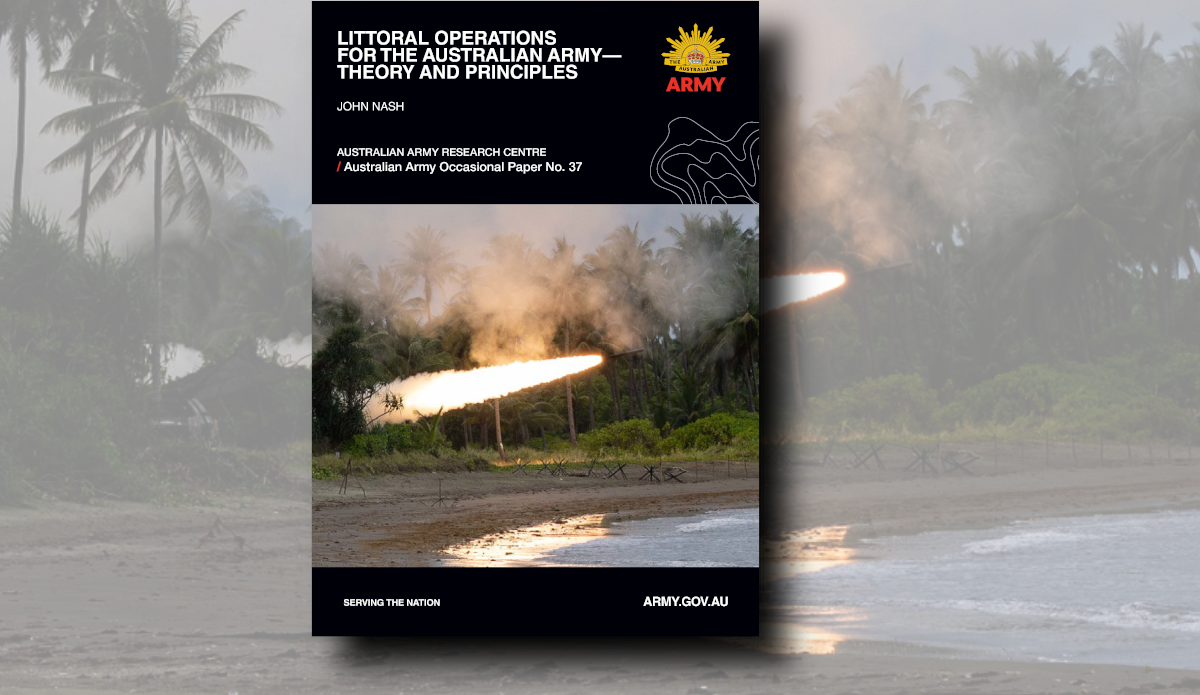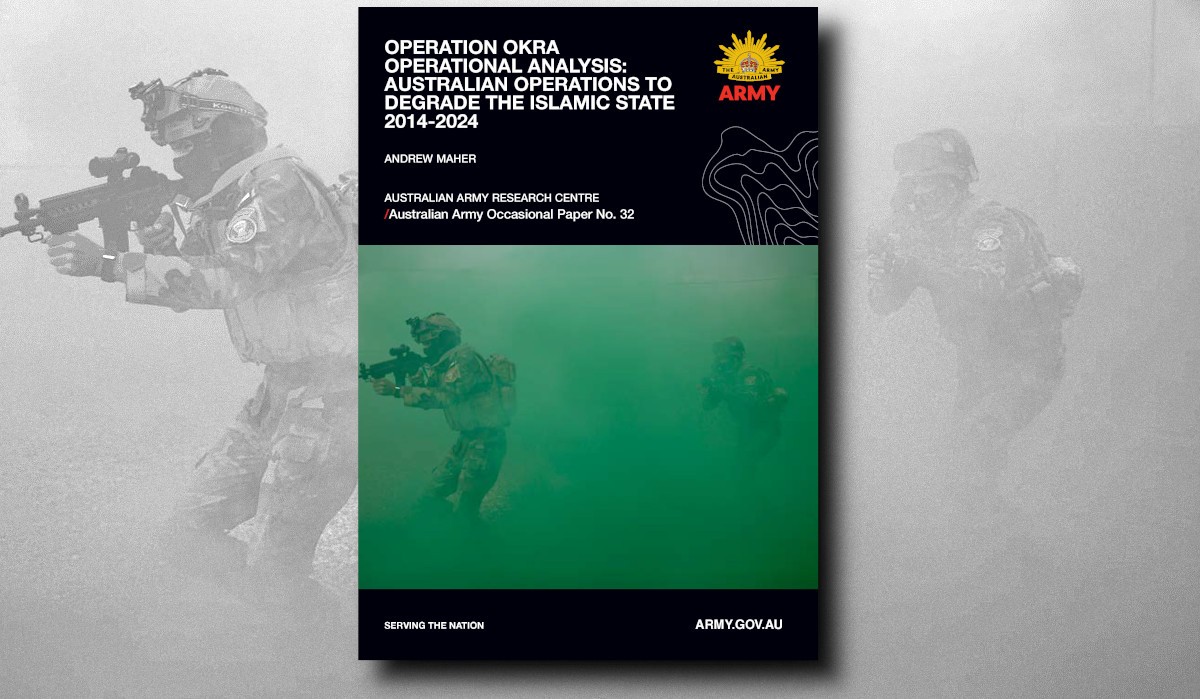Deterrence
Dr Cathy Moloney of the Australian Defence College drew attention this week toward hypersonic weapons and how they might play a role in an Australian deterrence strategy. Dr Moloney argues that ‘the recent successful testing of Russian hypersonic missiles means that this is not an abstract conversation… but a real threat that would be… used as a coercive tool to change great power politics in our region.’
Major Power Competition
A report by the Asymmetric Warfare Group (AWG), John Hopkins University and U.S. Army TRADOC explores the manner in which Russian Private Military Companies (PMCs) are being employed to compete below the threshold of a traditional military response. This report is amplified by similar product from the Warsaw Institute, a Polish think-tank, published in 2019 and 2020. AWG have elsewhere demonstrated Russia’s employment of PMCs in the Russian New Generation Warfare Handbook. This argues that Russia’s lessons from recent conflict are to evolve smaller, more flexible formations; are relying upon proxies; deploy large numbers of snipers; use cyberwarfare, electronic warfare and information operations for offensive ends; and deny air and logistic support through A2AD weapons.
Irregular Warfare and Terrorism
In the latest edition of the Military Strategy magazine, The Idlib Campaign over 2019-2020 is examined. This analysis examines rebel tactics in resisting the Assad Regime’s advances, in addition to exploring the influence of Turkish and Russian support respectively.
From the Centre for Historical Analysis and Conflict Research, this analysis of the turbulent insecurity in Mali helps to explain the endemic drivers of conflict. This piece summarises detailed analysis from the Council on Foreign Relations that concludes that ‘continued strengthening of militant groups in Mali and their spread to neighbouring countries could allow al-Qaeda and the Islamic State to establish new safe haven and destabilise the region through militancy and terrorism.’
Information Warfare and Cyber
A former CIA officer who spent years working on counter-extremism issues in Kenya, delivers a TED talk on how social media platforms polarise societies and enable foreign interference operations to thrive. Through the use of algorithms, social media feeds people personalised information that reinforces their biases and creates a culture of absolutism. She states these are the same tactics terrorist recruiters used on vulnerable youth, with the ultimate goal of persuading their behaviour. The Wall Street Journal recently exposed a 2018 Facebook presentation that stated ‘our algorithms exploit the human brain’s attraction to divisiveness... if left unchecked (it warned it would feed users) more and more divisive content in an effort to gain user attention and increase time on the platform.’
Lawfare reports on ‘an opportunity for strengthening US-Australian Cyber Cooperation’. “To anticipate bilateral cooperation on cyber, the U.S. and Australia should focus on three initiatives: resumption of high-level exchanges between policymakers on cybersecurity, restoring a Cyber Track 1.5 Dialogue by 2021’s Australian-United States Ministerial Consultations (AUSMIN) meeting, and increasing cooperation between the Australian Cyber Security Centre and the United States’s Cyber Command and intelligence community.” This follows Defence Minister Linda Reynolds outlining the largest ever investment in cybersecurity (AUD$1.35B), the Cyber Enhanced Situational Awareness and Response (CESAR) shortly after the 19 June cyberattack on Australia by a “sophisticated state-based actor”.
Meanwhile, the US Air Force is trying a ‘better approach to Cyber Warfare’ by focusing on innovation and integrated ways of working. This resulted in the establishment of a new 867th Cyberspace Operations Group that oversees information warfare and provides cyber expertise to the US Cyber Command and the Pentagon.
A recent IISS webinar argues the importance of western governments engaging with the public to prevent societies from dividing against themselves. This webinar is based upon a RAND report previously discussed in ETOs, titled, ‘The Utility of Military Force and Public Understanding in the UK’. The key takeaway is that ‘national resilience requires ongoing public engagement and genuine debate,’ a theme that will be explored in the forthcoming AARC Quarter 3 Strategic Assessment. The webinar also argues that engagement makes societies more robust and resilient to internal division; because they are given greater ownership through opportunities to participate in debates on national security matters.
Regional View
Janes reports on the Brazilian Navy’s new 20-year plan and highlights their focus to control their maritime access through operations in the Southern Atlantic Ocean. The plan also covers a range of modernisation projects, including: ‘acquiring mine-hunting ships, escort ships, aircraft carriers, a logistics support ship, coastal, and offshore patrol ships, Antarctic support ship, training ships, survey ships, unmanned aerial vehicles (UAVs), fighter jets, and lightweight training and utility helicopters; enlarge and modernise equipment of the Marines Corps; developing the Míssil Antinavio de Superfície (MANSUP) and Míssil Antinavio Aéreo (MANAER) anti-ship missiles, and the local construction of the country’s first nuclear-powered submarine SN Álvaro Alberto.’ This modernisation effort appears to support the grand strategic vision under Brazilian Leadership to achieve their geostrategic ambitions and expand their reach as a regional power in South America, and become a more global power into the Indo-Pacific region.
The Lowy Institute released analysis on the history and the deepening of security ties between Australia and India due to shared concerns about China’s rise. The key findings illustrate a continuing improvement in strategic coordination, cooperation and military interoperability. In June, both countries signed two bilateral military agreements with a joint post-summit statement being released stating both countries ‘share a vision of a free, open, inclusive and rules-based Indo-Pacific region to support the freedom of navigation, over-flight and peaceful and cooperative use of the seas.’ Lowy argues future priorities should aim to continue deepening this defence relationship through a further increase in our military interoperability and defence technology.
Innovation
In the latest edition of Joint Forces Quarterly (JFQ), several articles are of note. The first, ‘Accelerating Military Innovation’ encourages the learning of lessons from China and Israel and their respective military modernisation programs. The second, ‘Structuring for Competition’ encourages a re-examination of the U.S. combatant commands concept, in light of great power competition. The broader JFQ 3rd Quarter edition is available here.
Events
- 29 September – 2 October: Black Hat Asia. Promoted as ‘the conference for security researchers, with the unveiling of new research, development, trends, plus training and an expo. This is a virtual event. Details are available here.
- 29 September: 1000-1100: US Studies Centre are hosting a conversation with Ambassador Jane Hardy on ‘Empowering American Allies and Partners in the Indo-Pacific.’ Details are available here.
- 29 September: UNSW Canberra are hosting a seminar on ‘The Militia, Conscription and Politics of ‘One Army’, 1939-1945.’ Details are available here.
- 7 October to 25 November: 2020 Australian Naval Institute Goldrick Seminars ‘Remote and Autonomous Systems at Sea’. This series of 8 webinars will be held each week from 7 October via Zoom. Details are available here.
- 1 November: DSTG is hosting their Emerging Disruptive Technology Assessment Symposium Agile Command and Control (AC2). Details are available here.


